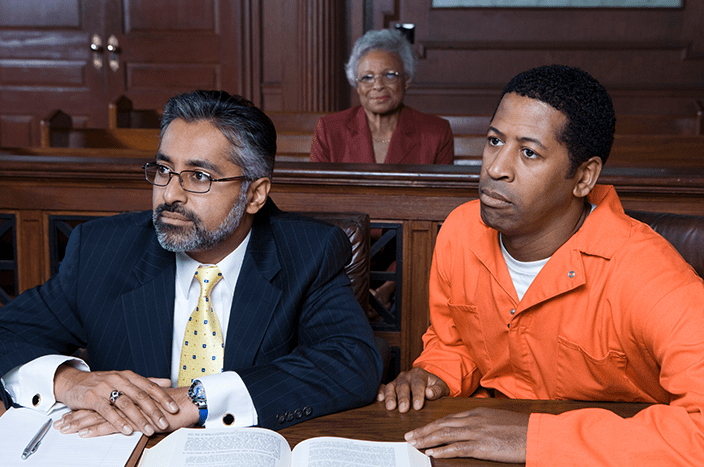# Understanding the Role of a Murder Lawyer: A Comprehensive Guide
In the complex world of criminal law, few cases are as serious and consequential as those involving murder. The role of a **Murder Lawyer** is crucial,not only in defending the accused but also in upholding justice within the legal system. This article delves into the responsibilities and challenges faced by Murder Lawyers, exploring the intricate legal landscape surrounding murder cases.
## The Fundamentals of Murder Law
### Overview of Murder Charges and Classifications
Murder charges can vary considerably based on jurisdiction, but they generally involve the intentional killing of another person.Understanding these classifications is essential for grasping how murder cases are prosecuted:
– **First-Degree murder**: This charge typically involves premeditated killing with intent.
– **Second-degree Murder**: Involves intentional killing without premeditation or planning.
– **Voluntary manslaughter**: Frequently enough occurs in situations were a person kills another in a moment of passion or provocation.
– **Involuntary Manslaughter**: refers to unintentional killings that result from reckless behavior.
Each classification carries distinct legal elements and potential penalties that can significantly impact an accused individual’s life.
### Key Legal Principles in Murder Cases
Two essential concepts underpin murder law:
1. **Mens Rea (Mental State)**: Establishing intent is critical; it determines whether an act was committed with purpose or malice.
2. **Actus Reus (Criminal Act)**: Proving that a deliberate act led to someone’s death is essential for establishing guilt.
Understanding these principles helps clarify how courts evaluate evidence and determine culpability.
### Distinctions Between Murder and Other Criminal Offenses
Differentiating between various types of homicide—such as manslaughter versus murder—is vital for accurately categorizing charges. Factors like premeditation, intent, and mitigating circumstances play meaningful roles in these distinctions.
## Responsibilities of a Murder Lawyer
The responsibilities shouldered by a *Murder Lawyer* extend far beyond mere courtroom representation; they encompass various critical functions throughout the legal process:
### Legal Representation and Defense Strategies
A primary duty involves providing robust defense strategies tailored to each case’s unique circumstances:
– Analyzing evidence meticulously to identify weaknesses in prosecution arguments.
– Crafting compelling narratives that challenge accusations while establishing reasonable doubt among jurors.
### Client Communication and Confidentiality
Effective communication with clients is paramount:
– Lawyers must ensure their clients fully understand case details while maintaining confidentiality—a cornerstone ethical obligation that fosters trust between lawyer and client.
### Navigating the Criminal Justice System
Murder Lawyers guide their clients through complex legal proceedings:
– They explain potential outcomes, available defense strategies, rights under law, ensuring informed decision-making at every stage from arrest through trial.## Building an Effective Defense Strategy
constructing an effective defense against murder charges requires strategic planning involving several key elements:
### Gathering Evidence Through Thorough Investigations
A comprehensive examination forms the backbone of any solid defense strategy:
1. Examining crime scenes meticulously
2. Interviewing witnesses
3. Collaborating with investigators to uncover inconsistencies or alternative narratives can all be pivotal steps toward building a strong case against prosecution claims.
### Utilizing Expert witnesses
Expert testimony often plays an instrumental role during trials by providing specialized insights into complex issues such as forensic evidence reliability or psychological evaluations related to mental state at time-of-crime incidents—critical factors influencing jury perceptions about guilt versus innocence!
#### Types Of Expert Witnesses Include:
– Forensic experts who analyze physical evidence
– Psychologists who assess mental health conditions relevant during alleged offenses
These professionals help bolster defenses by challenging prosecution claims effectively!
### Crafting Persuasive Arguments Against Prosecution Evidence
An effective *Murder Lawyer* must skillfully dissect prosecution arguments while constructing persuasive counterarguments aimed at discrediting witness credibility & disputing forensic findings! This includes highlighting alternative interpretations surrounding events leading up-to alleged crimes—essentially creating reasonable doubt within juror minds!
## Legal Procedures involved In Murder Cases
Navigating through established procedures ensures fair treatment throughout trials—from initial arrests all-the-way-to final verdicts! Hear’s what this journey typically entails…
### arrest And Arraignment Processes
Once suspects are identified based-on probable cause established via investigations conducted by law enforcement agencies—they may face immediate arrest followed-by formal arraignment hearings where defendants learn about specific charges filed against them along-with their rights under applicable laws!
#### Key Steps Include:
– Presentation before court officials
– Opportunity given for entering pleas regarding said allegations
this initial phase sets tone moving forward into subsequent stages leading towards trial proceedings themselves…
### Pre-Trial Motions And Hearings
Before reaching trial stage itself—lawyers often file motions addressing issues like admissibility concerning certain pieces-of-evidence presented later-on during actual trials! These motions allow courts time-to-review matters before proceeding further down path towards resolution via jury deliberation processes ultimately determining outcomes based-upon presented facts/evidence alone rather than extraneous influences affecting fairness overall…
#### Common Pre-Trial Motions May Address:
– Suppression requests regarding illegally obtained materials
– Dismissal requests if insufficient grounds exist supporting continued prosecutions
Such actions aim-at safeguarding constitutional rights afforded individuals facing serious criminal allegations including those related specifically pertaining murders committed under varying circumstances encountered across jurisdictions nationwide today!
## Conclusion
The indispensable role played-by *murder Lawyers* cannot be overstated when it comes down-to navigating complexities inherent within our justice systems today! Their multifaceted responsibilities encompass everything from crafting strategic defenses tailored specifically around individual cases right-through ensuring adherence towards ethical standards upheld throughout entire processes involved therein—all aimed-at achieving fair outcomes reflective-of true justice served accordingly regardless severity associated alongside respective crimes charged upon defendants facing dire consequences ahead should convictions occur following lengthy deliberations held amongst juries tasked-with making determinations ultimately deciding fates involved hereafter…
